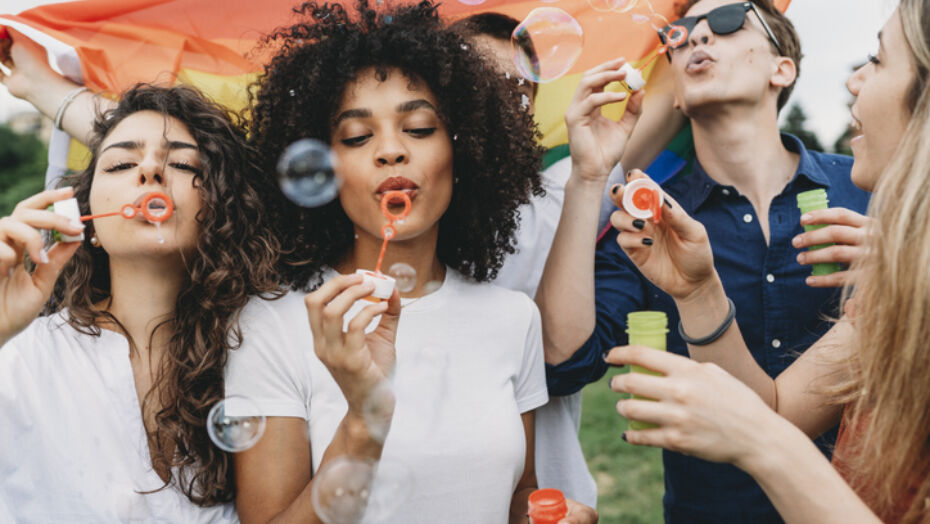
How to Support LGBTQ+ Friends
If you are not a member of the LGBTQ+ community, but have friends who are, it can be tough to figure out how to be a great ally to your loved one. Being a supporter of your friend, family member or child is a great first step in being an ally. Below we share other ways that you can support your LGBTQ+ friend.
1. Listen.
Be a listening ear. Understand their journey with sexuality and be there to support them. Their journey is not linear, and they will face many challenges on their journey of sexuality. Don’t judge or invalidate their experiences. Listen to how their sexuality or gender identity affects what they do or decisions that they make. Their sexuality may or may not change on their journey, such as bisexual to gay. However, you should not judge and support their decision. This journey is tough, and they will need a supporter there for them. Be mindful of situations where they may feel uncomfortable and talk about it ahead of time. Don’t assume that they’re comfortable expressing their LGBTQ+ identity to everyone.
2. Respect their pronouns.
Always use the preferred pronouns of your transgender friend. Respect their gender identity and name. For some people, their gender identity is different than their birth sex. These people may decide to change their anatomy to identify with their own internal gender identity. There are also people who identify as non-binary, which means that they don’t identify with either “man” or “woman.’’ Many times, the preferred pronouns for non-binary individuals are “they,’’ “their” and “them”, but ask them what their own preferred pronouns.
3. Stand up.
You should always speak up for your friend even when they are not around. The only way change can happen is if you speak up. Your friend should be treated with the same respect as you. Moreover, if a business doesn’t support your views, you should make a choice with your money on which businesses you support. Engage in respectful conversations when others say hurtful things.
4. Let them have their own group of LGBTQ+ friends.
You are still their friend. However, it’s good to have support from friends who understand you from personal experiences. By having LGBTQ+ friends and safe spaces, it can help them to become more comfortable in their own skin and to grow as a person. Don’t crash their events. If you are invited, go! But let them enjoy their space and grow in their sexuality.
5. Confront your own bias and judgment.
It may be uncomfortable, but it’s important to confront your own bias and privilege with sexuality. LGTBQ+ individuals experience biases every day in their lives. Sometimes, bias can be unconscious and unintentional. Talk to your friend. Ask how you can be a better ally in the LGBTQ+ community. Be open to the feedback and act by practicing their advice. There are also plenty of books and online articles on how to be a better ally. Don’t be afraid to ask the LGBTQ+ people in your lives if they notice anything that you do that is biased.
6. Love.
Lastly, love them! They are still the same person whom you have grown to love. It’s hard to come out and to consistently come out to people that you meet. They felt comfortable around you, and you should love them for that. Treat them the same way as you would treat any of your other friends. They will appreciate the commonality.
Ochsner Health is home to the region’s largest and most talented team of LGBTQ+ experienced providers, and our facilities have been recognized as “Top Performers” in caring for LGBTQ+ patients by the Human Rights Campaign’s Healthcare Equality Index.
Click here to learn more about LGBTQ+ Health Care at Ochsner Health.



